Clean Energy Group
The hype around using green or blue hydrogen as a decarbonization tool overlooks the fact that all hydrogen use can significantly increase global warming. How hydrogen is produced can have significant climate impacts.
The hype around clean hydrogen as a decarbonization tool overlooks the fact that all hydrogen significantly increases global warming if it leaks into the atmosphere, and its use with natural gas does not substantively reduce greenhouse gas emissions.
This report outlines the impacts of CEG’s 2022 grantmaking through the Technical Assistance Fund and the Resilient Power Leadership Initiative. The report covers the programs’ projects, partnerships, and lessons learned.
Can electric vehicles play a role in advancing equity in underserved and historically marginalized communities? This report explores that question in four parts.
Clean Energy Group and partners submitted comments to the New Jersey Department of Environmental Protection regarding a proposed rulemaking concept to allow clean energy compliance options for existing Electric Generating Units. These comments raise significant questions about various elements of the proposal and expressed concern that such rules, if developed and approved, would enable fossil assets to remain online unnecessarily.
This report describes backup power needs and opportunities at Florida’s Community Health Centers. The report includes a technoeconomic analysis for using solar+storage for emergency backup power at health centers, and provides insights and recommendations for resilient power adoption at Health Centers nationwide.
This report investigates the barriers to more effective and efficient interconnection of distributed energy storage resources.
CEG submitted comments to the Massachusetts Energy Efficiency Advisory Council to express concern about potentially harmful proposed changes to the Massachusetts ConnectedSolutions program incentive rules.
This analysis determines that the development of a system featuring solar, battery storage, and a backup gas turbine would be a viable and preferred alternative to a new gas-fired CC plant for meeting NJ Transit’s critical loads during severe weather-related outages.





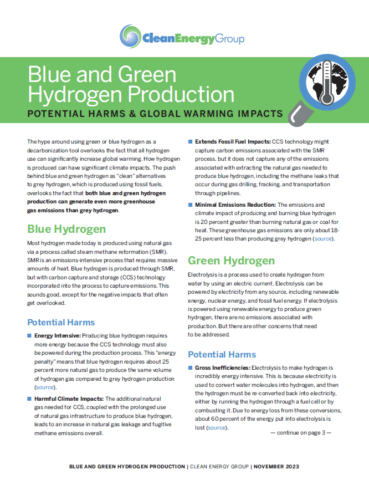
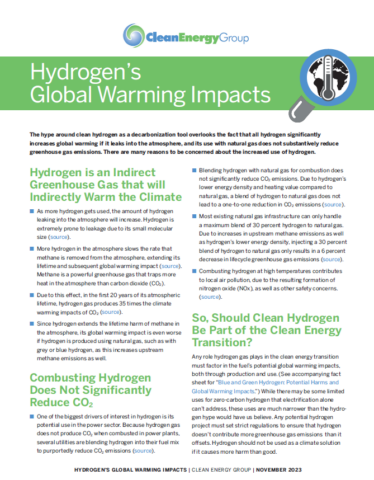
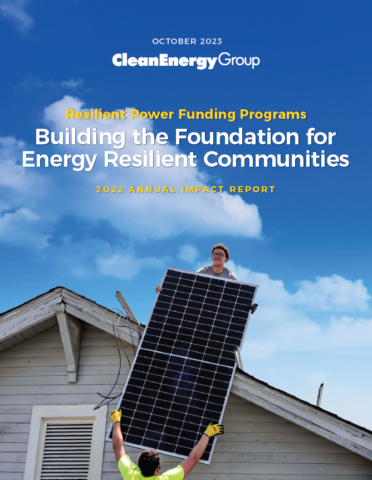
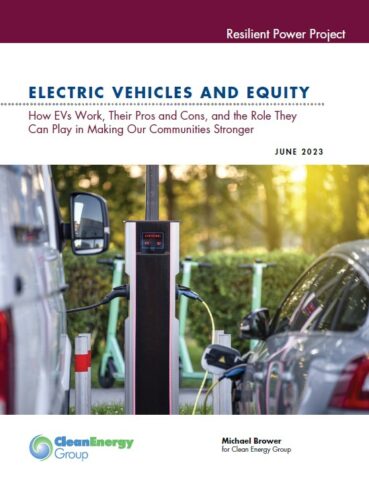
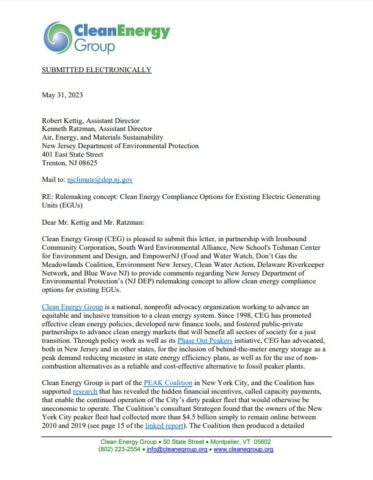
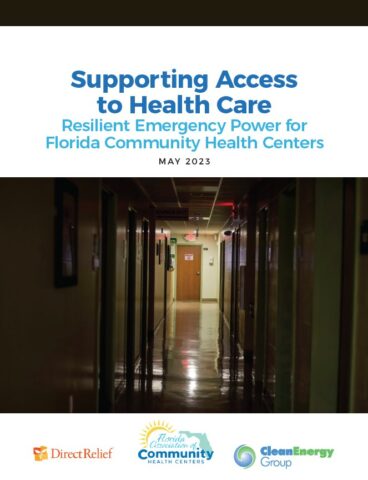
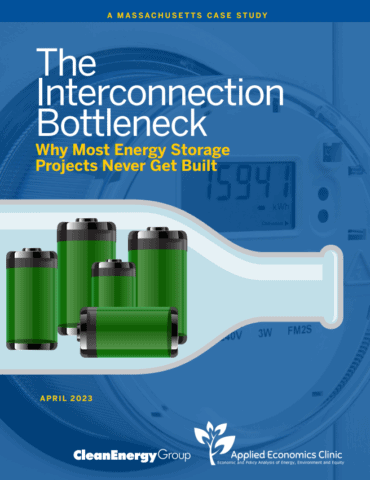
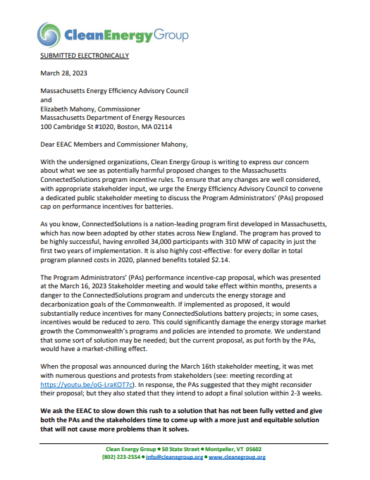
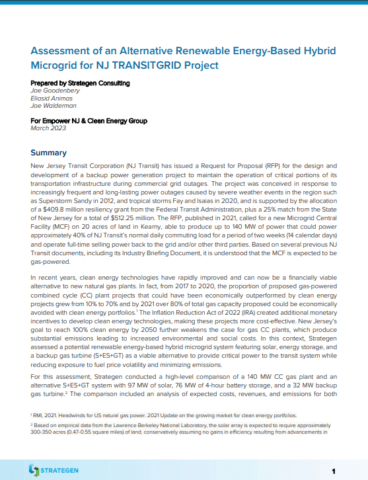
Clean Energy Group Comments on EPA’s Proposed Rules on Greenhouse Gas Emissions Limits for Power Plants
The EPA is proposing changes to the Clean Air Act related to greenhouse gas emissions from fossil fuel-fired electric generating units. CEG, along with nine partner organizations, has submitted comments expressing concerns about the potential impact of these proposed changes.